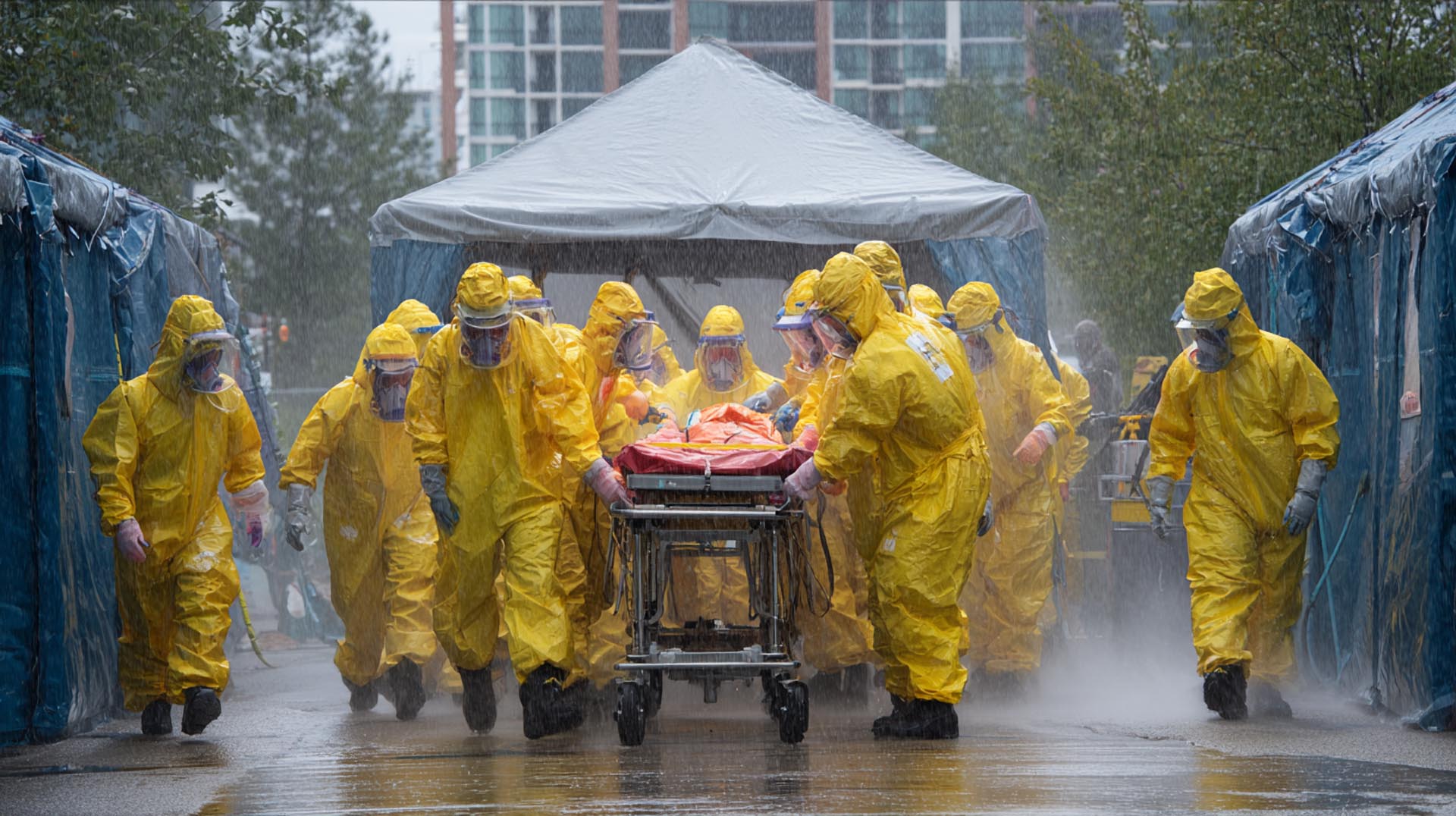- Description
-
Details
This 4-hour CE course is designed to equip healthcare professionals with the foundational knowledge and practical strategies needed to identify, respond to, and manage bioterrorism-related events in clinical and community settings. With growing concerns over global health security, clinicians must be prepared to recognize the signs of potential biological threats and coordinate an effective multidisciplinary response to minimize morbidity, mortality, and public panic.
The course explores the classification of biological agents by the Centers for Disease Control and Prevention (CDC), with a focus on high-priority Category A pathogens such as anthrax, botulism, plague, smallpox, tularemia, and viral hemorrhagic fevers. Participants will review the clinical features, modes of transmission, diagnostic indicators, and treatment protocols for each agent, along with appropriate infection control practices and isolation precautions.
Attention is given to surveillance systems, reporting mechanisms, and the role of public health agencies in outbreak detection and containment. The course outlines the legal and ethical responsibilities of healthcare professionals during bioterrorism events, including patient confidentiality, triage, mass casualty management, and crisis communication.
A multidisciplinary approach is emphasized, highlighting coordination between emergency departments, infectious disease teams, laboratory personnel, and local/state/federal authorities. Case-based learning and scenario planning help reinforce rapid clinical decision-making and effective resource utilization during high-pressure emergencies.
Learning Objectives:
- Upon successful completion of this course, participants will be able to:
- Identify major biological agents used in bioterrorism and their clinical manifestations.
- Apply appropriate diagnostic, treatment, and infection control measures.
- Understand the structure of public health and emergency response systems.
- Implement reporting procedures and comply with legal mandates.
- Support coordinated, ethical decision-making in mass casualty and outbreak scenarios.
- Enhance institutional preparedness through drills, planning, and education.
Course Completion Requirements:
To complete this CE course and receive full credit, participants must:
- Register for the course.
- Review all course materials.
- Complete the post-test with a passing score of 70% or higher.
- Submit the course evaluation survey.
Note: Some courses may include additional assignments, case reviews, or interactive scenarios.
Important Disclosures:
- Conflict of Interest: The course planners, authors, and presenters have no financial or commercial conflicts of interest related to this educational activity
- Commercial Support: This course has not received sponsorship or financial support from commercial entities.
- Non-Endorsement: Approval of this course as a continuing education activity does not imply endorsement of any products, services, or companies mentioned within the content.
- Off-Label Product Use: No content related to off-label use of FDA-approved products is included in this course.

Key Course Benefits:

- Strengthens preparedness and response capability in the face of biological threats.
- Reinforces collaboration between clinical, public health, and emergency systems.
- Enhances knowledge of pathogen-specific diagnosis, treatment, and containment.
- Prepares nurses and other healthcare providers for ethical, legal, and operational challenges in bioterrorism situations.
- Delivered in an interactive, online format adaptable to multiple disciplines.
Approvals and Accreditation:
The CE Learning Network (CELN) is an accredited provider of continuing education for nurses, recognized by the Florida Board of Nursing and the District of Columbia Board of Nursing.
This course adheres to the standards established by the American Nurses Credentialing Center’s Commission on Accreditation.
Approved for the following nursing professionals:
- Florida Board of Nursing: RNs, LPNs, CNSs, ARNPs
- District of Columbia Board of Nursing: RNs, Nurse Anesthetists, CNSs, Midwives, ARNPs
For added convenience, CELN automatically reports earned CE hours to CEBroker.com on behalf of participants.






 We report your course completions to CE Broker automatically so you are in compliance with the Florida board of nursing requirements
We report your course completions to CE Broker automatically so you are in compliance with the Florida board of nursing requirements




